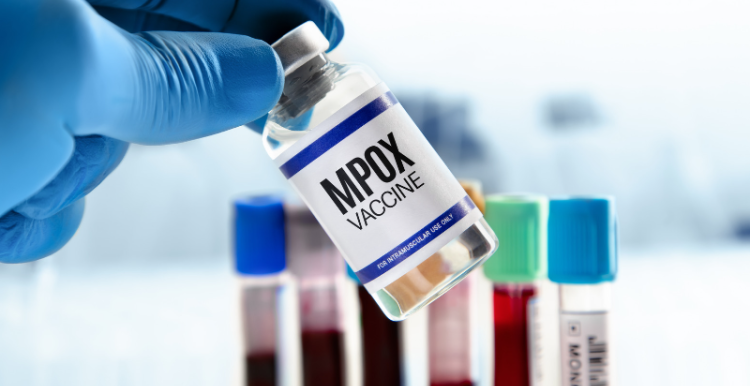MPox virus update

Transmission
- Close contact - via lesions, body fluids and respiratory droplets (touching, talking or breathing close)
- Contaminated objects
- Infected animals (squirrels, rats, …)
- During pregnancy, the virus may be passed to the baby
Symptoms
- rash
- fever
- sore throat
- headache
- muscle aches
- back pain
- low energy
- swollen lymph nodes
It can take 1-21 days between exposure and symptoms appearing.
The symptoms usually last between 2 to 4 weeks.
It is important to note that the risk of severe disease is higher in children, pregnant women and immunosuppressed individuals.
Diagnosis
The best test to detect the Mpox virus is by PCR (polymerase chain reaction). The sample is collected from the rash with a swab.
Treatment and vaccines
The treatment for Mpox consists of managing the pain, taking care of the rash and preventing further complications.
The Mpox vaccine (pre-exposure) is recommended for specific groups at risk.
The World Health Organization (WHO) has identified those groups to be at risk:
- health and care workers at risk of exposure
- people in the same household or close community as someone who has Mpox, including children
- people who have multiple sex partners
- sex workers of any gender and their clients
The vaccine should be given as soon as possible after exposure, and up to 4 days after the encounter with the virus. It can be administrated for up to 14 days if the person has not developed any symptoms yet.
Prevention
If you have any questions, contact your GP or health care provider for advice.
To prevent transmission after being diagnosed positive to Mpox, the WHO official guidelines recommend to:
- stay at home and in your own, well-ventilated room if possible;
- wash hands often with soap and water or hand sanitizer, especially before or after touching sores;
- wear a mask and cover lesions when around other people until your rash heals;
- keep skin dry and uncovered (unless in a room with someone else);
- avoid touching items in shared spaces and disinfect shared spaces frequently;
- use saltwater rinses for sores in the mouth;
- take warm baths with baking soda or Epsom salts for body sores; and
- take over-the-counter medications for pain like paracetamol (acetaminophen) or ibuprofen.
Sources
- World Health Organization, 26 August 2024: https://www.who.int/news-room/fact-sheets/detail/mpox [accessed 11 September 2024]
- The Green Book, 26 September 2022: https://assets.publishing.service.gov.uk/media/63318341d3bf7f567fd9eb87/Green-Book-chapter-29_Smallpox-and-monkeypox_26September2022.pdf [accessed 11 September 2024]
- UK Health Security Agency, updated 5 September 2024: https://www.gov.uk/government/publications/monkeypox-outbreak-epidemiological-overview/mpox-monkeypox-outbreak-epidemiological-overview-5-september-2024 [accessed 11 September 2024]
- UK Health Security Agency, published 20 May 2022, updated 19 August 2024: https://www.gov.uk/guidance/monkeypox-case-definitions [accessed 11 September 2024]
